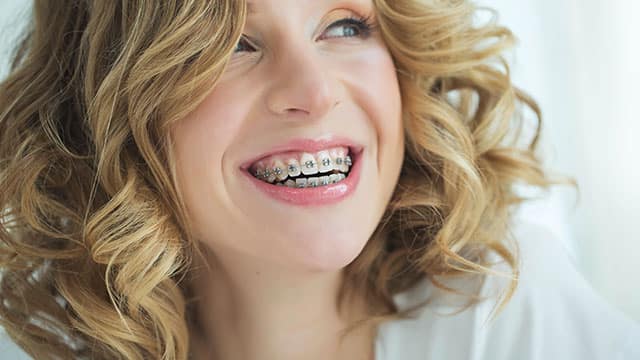Why Retainers?
You might think your journey to a beautiful smile and a properly aligned bite is complete the moment you get your braces off, and you’d be mostly right. However, it’s a vital period to ensure you wear your retainer and follow the recommendations of your dental professional (including whether to wear it at night, during the day, or both!).
Retainers are helpful orthodontic appliances and custom mouthpieces that stabilize your teeth’s position. Keep in mind that it’s normal for your bite to have an adjustment period just after removing your appliance.
Retainers help prevent your teeth from shifting position after your orthodontic appliance (like braces) has been removed. Your teeth will naturally adjust from the forces applied to them from a normal daily activity like chewing – a retainer helps prevent this from occurring. Your teeth continue to shift slightly throughout your life.
Think of retainers as a valuable and effective way to protect the investment of time and money you’ve made wearing an orthodontic appliance. They ensure that your teeth stay properly positioned while new tissue and bone grow to secure them in place.
Can Retainers Realign Teeth?
The million-dollar question you may be asking: do retainers straighten teeth like other orthodontics? The short answer is no. They don’t apply the steady force over time needed to make major changes to your teeth' position. Instead, they simply hold your teeth in place.
That being said, that can help make minor adjustments to the position of your teeth and bite. If you’ve neglected your retainer for a few weeks or months, be sure to try your retainer on to see if it still fits – if so, it may help undo any shifting that’s occurred since you’ve worn it if new bone tissue hasn’t grown. So the answer to the question, “can retainers move teeth back?” is yes, sometimes.
If your retainer doesn’t fit snugly or causes pain, be sure to schedule an appointment with your dental professional for their recommendation.
Retainer Wear and Care
The power to keep your teeth and bite in alignment is in your hands by properly caring for your retainer and wearing it as recommended by your dental professional.
Tips to properly care for your retainer include:
- Brush your retainer after each meal (but be sure to use a non-abrasive toothpaste!)
- Use cold water to rinse your retainer after each use
- Avoid hot water and environments that could cause warping
- Carry a storage case to keep it safe whenever you’re not using it
- Keep it away from pets and try not to store it in a napkin, as it’s common to throw them away accidentally
If you damage or misplace your retainer, don’t fret! Schedule an appointment with your dental professional for their assistance repairing or replacing it.
An important thing to remember is when you think retainers, remember that they are mostly meant to retain your smile, not fully adjust it. While it can be challenging to remember to wear your retainer as recommended, doing so will empower you to protect your teeth's position. You’ve made a stellar choice to inform yourself on the ins and outs of your retainer and are well prepared to maintain it.
This article is intended to promote understanding of and knowledge about general oral health topics. It is not intended to be a substitute for professional advice, diagnosis or treatment. Always seek the advice of your dentist or other qualified healthcare provider with any questions you may have regarding a medical condition or treatment.
ORAL HEALTH QUIZ
What's behind your smile?
Take our Oral Health assessment to get the most from your oral care routine
ORAL HEALTH QUIZ
What's behind your smile?
Take our Oral Health assessment to get the most from your oral care routine















